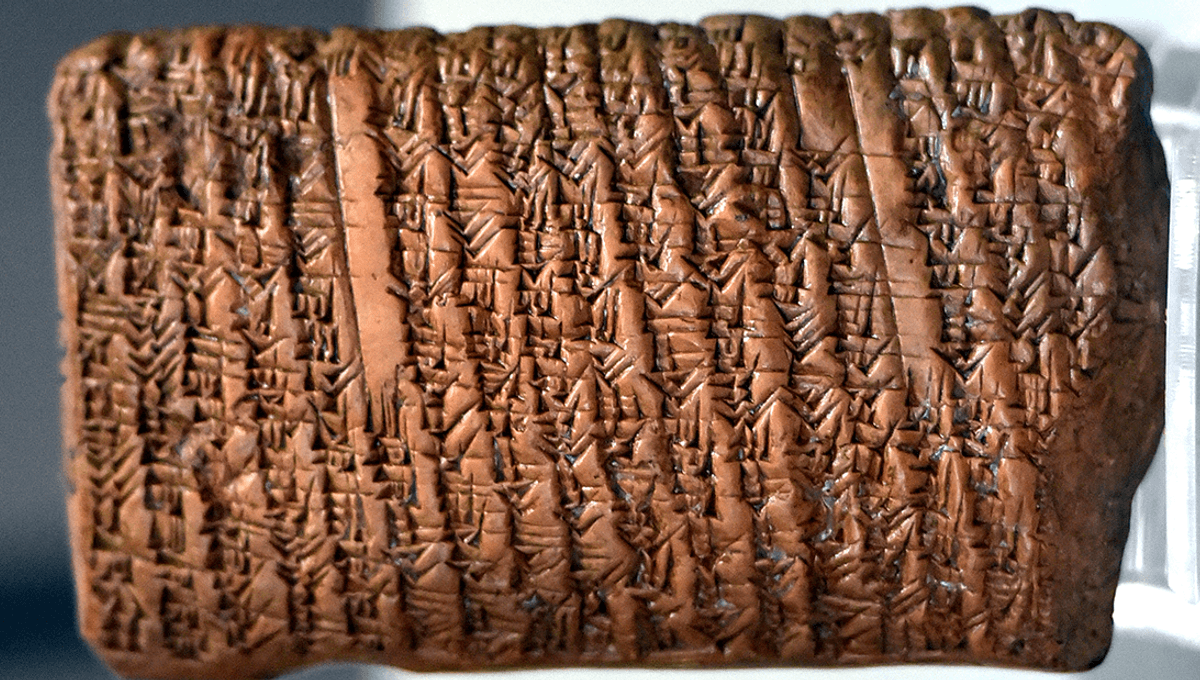Study math for long enough and you will likely have cursed Pythagoras’s name, or said “praise be to Pythagoras” if you’re a bit of a fan of triangles.
But while Pythagoras was an important historical figure in the development of mathematics, he did not figure out the equation most associated with him (a2 + b2 = c2). In fact, there is an ancient Babylonian tablet (by the catchy name of IM 67118) which uses the Pythagorean theorem to solve the length of a diagonal inside a rectangle. The tablet, likely used for teaching, dates from 1770 BCE – centuries before Pythagoras was born in around 570 BCE.



Nah. There’s heaps of Babylon tablets in existence. Most of them very mundane - how much beer was fed to your slaves last month, how many goats were born, that sort of thing.
Scribes usually kept tablets damp so the clay was still supple enough to take an imprint from a reed (cuneiform) but often the stuff we find archeologically is the burned remains of buildings which have been built over later - but in the burning the tablets have been “fired”.